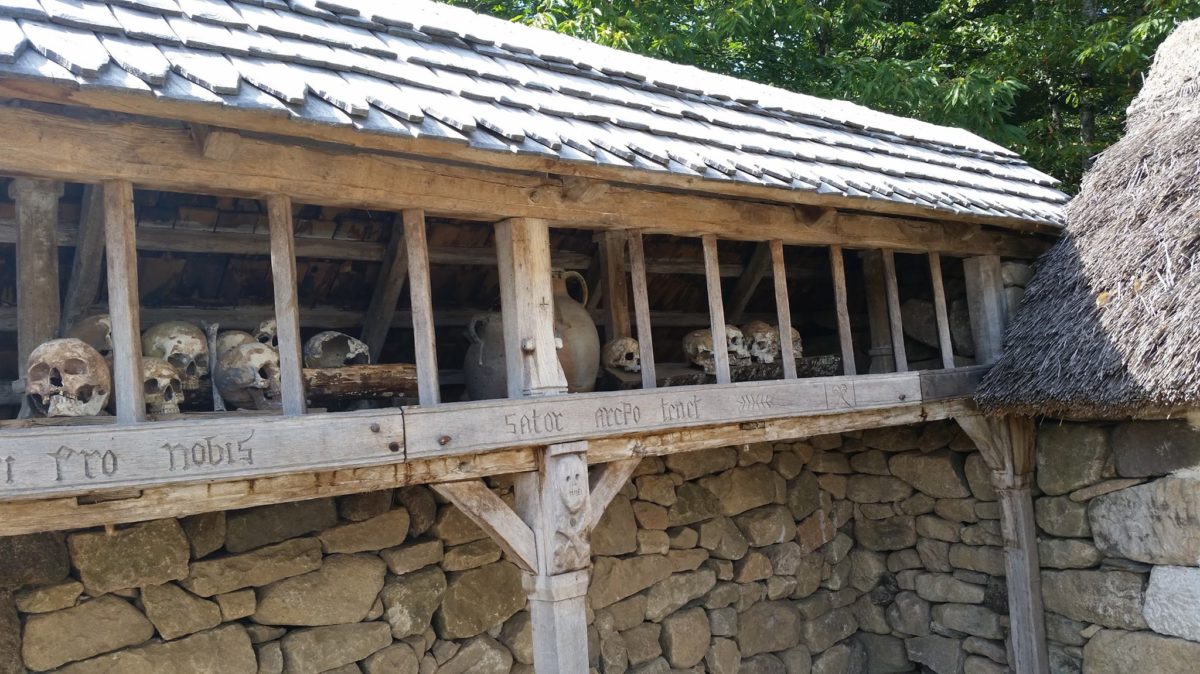In the third book in the Game of Thrones series, due to broken promises and general vindictiveness, Walder Frey schemes to kill Catelyn Stark and her son Robb at a wedding held in his household. During the fight, Robb is wounded. Before he’s killed, Catelyn grabs a knife and holds one of the Freys captive, hoping Walder will let her son go. Walder Frey is unmoved and Catelyn kills her captive before being killed herself. In the book, her captive is Walder Frey’s grandson Jinglebell. In the show, it’s Walder Frey’s wife Joyeuse. It’s a small change, but one that shifts the culmination of Catelyn’s arc enough to be noteworthy.
Catelyn Stark’s arc is one of a descent into grief. After Ned’s death, she strives to hold her depression at bay by advising Robb and taking care of her father. But the hits keep coming – Bran and Rickon, her father, Arya probably, and Sansa, who seems well and truly lost. When Robb’s death becomes eminent, she succumbs to her grief. In the book, she’s brought back to life as Lady Stoneheart, a being of vengeance and death. George R.R. Martin often uses death to punctuate an important character moment and so it is with Catelyn. The Frey she kills is the first life she takes and a symbol of her new view of the world – which skews more toward cruelty in the book and hopelessness in the show. Before, Catelyn argued heatedly against the war because it wouldn’t avenge Ned and only ensure more death. But in her final moment, after Robb has been run through, she kills her captive, even though it has no purpose.
So let us speak of the choice of captive. There are logistical explanations for the show choosing Lady Frey, a character we’ve already had dealings with, rather than introducing a new character just to kill him. But I’m more interested in examining it as a deliberate choice that resonates in a specific way.
In the book, Catelyn kills Jinglebell. Jinglebell, as Walder’s grandson, is a reflection of Robb. Catelyn specifically entreats Walder Frey to spare her son for the life of his grandson. The focus then is on Catelyn’s relationship with her children. It makes her choice even crueler because after everything she’s done to save her children, she’s willing to kill a child (Jinglebell is about 50, but the symbolic parallel stands).
The choice is desperate because Walder has a lot of children and Jinglebell is framed more as fool than family. Walder’s disinterest in his grandson’s life stands in stark contrast to Catelyn’s frantic bid for her son’s life. At the same time, it serves as a chilling parallel between Catelyn and Walder because Catelyn ultimately only values Jinglebell’s life as a tool to save her child. When she loses her child and kills Jinglebell, it is a declaration that she has given up on family, life, and redemption, becoming as cruel as Walder Frey.
In the show, Catelyn kills Joyeuse. Joyeuse is Catelyn’s mirror because she is a wife and (presumably) mother, the same as Catelyn. By killing Joyeuse, she’s killing herself. The show has no intention of bringing Catelyn back as Lady Stoneheart, so the murder is less a climax leading to a dramatic character change and more the culmination of Catelyn’s grief. By killing Joyeuse, the focus is turned onto Catelyn and allows us in our last moments to look hard at Catelyn and see her utter hopelessness.
Threatening to kill Joyeuse is a less desperate bid than threatening to kill Jinglebell, but it’s still a last-ditch effort. Joyeuse is Walder Frey’s eighth wife and to rub salt in the wound, he marries again soon after. Walder’s disregard for Joyeuse and Catelyn’s decision to murder the woman still compares and contrasts Walder and Catelyn’s vindictiveness in the same way as Jinglebell’s death, but it’s not quite as heartbreaking. It’s a murder of herself, which is more an act of hopelessness than an act of cruelty. But maybe that’s best because it gives us a greater sense of closure. Catelyn progressing from kind mother to hopeless widow with no family is a satisfying arc. The book, on the other hand, progresses from kind mother to vindictive monster and it would be a shame to not explore that monstrousness. Since the show doesn’t plan on using Lady Stoneheart, it’s more satisfying to end with the focus on Catelyn breaking under her despair, numbly killing a woman and thus herself.
